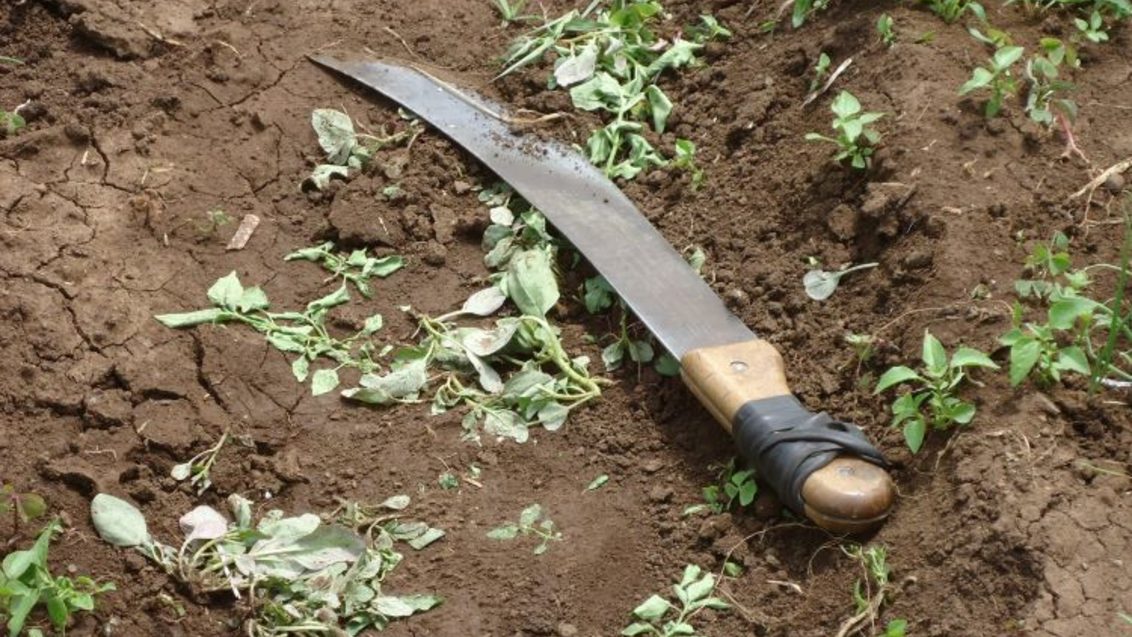Striving for soil that's a cut above the rest

For smallholders, improving soil health can be a major challenge. In Kenya, we’re working with partners to help them. There are multiple potential benefits.
Last year, The Nature Conservancy (TNC) and Syngenta announced their “Innovation for Nature” collaboration. This aims to promote soil health, resource efficiency and habitat protection in several major agricultural regions. One of these is Kenya, where our foundation (SFSA) is involved in the partnership. This section of the collaboration sets out to find scalable models for sustainable agricultural intensification.
Investing in soil health brings benefits to many
To start the program, the partnership selected the Tana River catchment area, where TNC had already been working with farmers. The TNC/SFSA team is now engaging with smallholders in Murang’a County, a densely populated region near Nairobi. “An important goal is to help them combine rainwater storage for irrigation with appropriate agronomic advice. That way, smallholders can earn money with off-season vegetable-growing,” explains George Osure, our Regional Director for East Africa. “The work here also reduces erosion, which benefits yields and water quality.”
The Murang’a initiative further includes soil testing and training on crop health through the promotion of Integrated Pest Management. This includes the precise and safe use of chemical crop protection products, in combination with other practices to control pests and diseases.
“This is a challenging area in which to work,” says TNC soil scientist Ruth Sitienei. “There are a lot of steep slopes. Smallholders here also lack access to the tools, services, advice and water with which they could professionalize their farming. The overall result is heavy soil erosion, coupled with low incomes.” Sitienei and colleagues are testing suitable measures with which smallholders can both increase their productivity and profits, and reduce environmental impacts. At the heart of these measures lies better soil management.
“Good soil health is integral to sustainable agriculture,” emphasizes our R&D Lead Dominik Klauser. “But the benefits go beyond farm level. They include improved water quality, filtration and storage, richer biodiversity and increased resilience to erratic weather events. In short, improving soil management helps mitigate the effects of climate change.”
SFSA and TNC team up for sustainable farming near Nairobi
The TNC/SFSA team has been in action since October 2018. Together with the County Government, Caritas and Syngenta, it has developed and tested crop management protocols on selected farms. “Where appropriate, our recommendations include optimum use of carefully chosen fertilizer blends, including micronutrients,” reports Ruth Sitienei. “Such inputs go hand-in-hand with guidance to smallholders on how different practices affect important soil properties such as acidity.” Further topics include new and existing crop varieties, diversification and rotation, pest and disease management, ideal spacing, planting, and watering, as well as harvest techniques.
“By investing in soil health, farmers could also benefit more from improved crop genetics, such as modern hybrids,” adds George Osure. “If our work helps Murang’a smallholders adopt better varieties, they could increase their yields and input use efficiency, and thus their overall profitability. Better soil management brings benefits all round.”
A year into the collaboration, it is still too early for smallholders to draw long-term conclusions. Initial reactions, however, have been positive. “We've benefited in this project especially through soil health trainings and analysis,” says farmer Douglas Irungu Mungai. “In the past, we have used fertilizer at blanket rates, with less knowledge of the environmental impact. Now we have gained more insights on quantity, timing, and type of fertilizer. I am able to irrigate my crops using waterpan harvested water, as well as scouting for pest and diseases in my various crops.”
Here's more on our soil health program.
